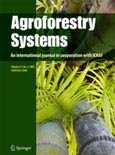Community-based approaches to natural resource management, including forest co-management, form part of a wider trend of decentralization of governance. In terms of process change and the level of power and responsibility transferred, decentralization takes many forms including deconcentration, delegation and devolution. It is expected that forest co-management should take the form of devolution as it should involve transfer of both decision-making powers and responsibilities to local institutions. However, few examples of successful devolution exist in forest management literature, as governments often transfer only responsibilities and not decision-making powers. We adapted the decentralization framework developed by Agrawal and Ribot to determine whether Malawis forest co-management programme has achieved devolution. One hundred thirty-four community and 21 committee members were interviewed about their perceptions of how powers and management rights are devolved, to whom and how those with power are accountable. We found that while co-management has established elected local institutions, they are not empowered to actively participate in decision-making. We also found a lack of downward accountability among leaders, which has limited the devolution process. We recommend the introduction of public hearings and public audit sessions to enhance accountability in decision-making and benefit-sharing processes. © 2015 Taylor and Francis.
DOI:
https://doi.org/10.1080/14728028.2015.1087886
Altmetric score:
Dimensions Citation Count:
























